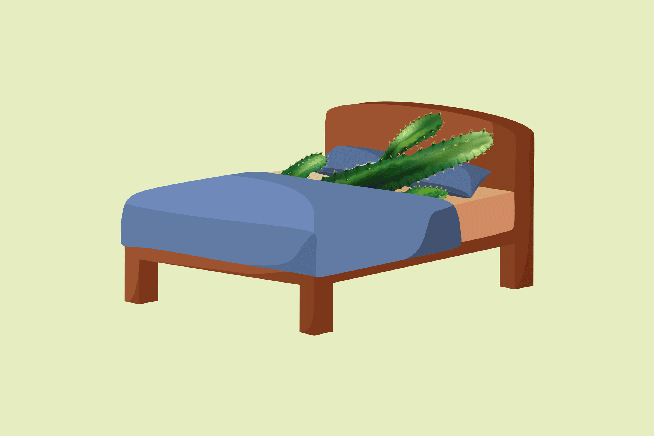EXPLAINED - Houseplants breathe at night. Should you therefore banish them from the bedroom?


Illustration Simon Tanner / NZZ
Reader question: Is it true that plants produce oxygen during the day, but need oxygen themselves at night and take it from the air? Shouldn't you therefore have plants in your bedroom?
NZZ.ch requires JavaScript for important functions. Your browser or ad blocker is currently preventing this.
Please adjust the settings.
As recently as the 1990s, many hospitals removed the bouquets of flowers for patients from their rooms in the evening and returned them in the morning. The idea was that the plants would consume oxygen at night, thus preventing sleeping patients from getting enough. Today, it's clear that this is an unnecessary precautionary measure.
In the "Well-being & Being Answers" section, we address questions from readers about health and nutrition. Write to us at [email protected].
It's true that plants only produce oxygen during the day. This happens during photosynthesis. They convert light, water, and carbon dioxide into energy-rich sugar and oxygen. They need this energy for their metabolism and growth. For this, they also need a little oxygen. However, they release most of the oxygen into the surrounding air through photosynthesis – thus ensuring the survival of all other living things.
Because plants continue to metabolize and grow at night, they still need a little oxygen. However, because they can't photosynthesize in the dark, they extract oxygen from the ambient air at night. "However, the amount in houseplants is so small that it's completely negligible," says Michael Raissig, a professor at the Institute of Plant Sciences at the University of Bern.
Enough oxygen for everyoneThe scale can be imagined as follows: A person consumes roughly the same amount of oxygen per night as approximately 250 square meters of plant leaf surface. That's an enormous area. An average houseplant, with its leaves, barely covers a surface area of one square meter. And this figure was calculated using plants that grow outdoors in the sun and have a significantly higher metabolic rate than houseplants. These plants have to survive with significantly less light and therefore require far less oxygen.
We can therefore confidently create a small jungle in our bedroom if we like. Based on these numbers, we would be much more likely to have to remove our partner from the bedroom at night. But that is not necessary, as Raissig illustrates with another numerical comparison: Even a small bedroom with a floor area of just 12 square meters and a normal room height contains around 5,000 liters of oxygen – that is, about a fifth of the air volume. After eight hours of sleep in this room, a person has used up 120 to 160 liters of oxygen – and even this would only be the case if the room were completely airtight. So there is still enough oxygen for another person in the bedroom or for plenty of houseplants.
A blessing for the psycheBut isn't it true that certain plant species, such as cacti and orchids, produce oxygen even at night – making them particularly suitable for the bedroom? "That's not entirely correct," says plant scientist Raissig. Thick-leaved plants do indeed have a slightly different metabolism. However, it's incorrect to say that they produce oxygen at night. After all, unlike other plants, they absorb carbon dioxide even in the dark and store it in their leaves until they can use it for photosynthesis during the day. However, there's no need to specifically choose such plants for the bedroom – the effect here is also minimal.
According to Raissig, the idea that indoor plants act as veritable "oxygen factories" during the day is a misconception. This only applies to plants in nature, exposed to direct sunlight. It's also often said that houseplants have a filtering function and purify the air. However, according to a scientific review, this effect is rather small.
Deepen your knowledge of nutrition, health, and psychology with our newsletter “Well-being & Being,” which lands in your inbox every Thursday.
One thing is clear, however: plants are generally good for our well-being. "They're good for our psyche, as research clearly shows," says Raissig. So, you can confidently choose your houseplants based on your personal preferences – even for the bedroom. However, it's important to note that certain plants can trigger allergic reactions . Anyone who experiences symptoms such as reddened eyes, asthma, or contact dermatitis should avoid the plants in question.
nzz.ch





